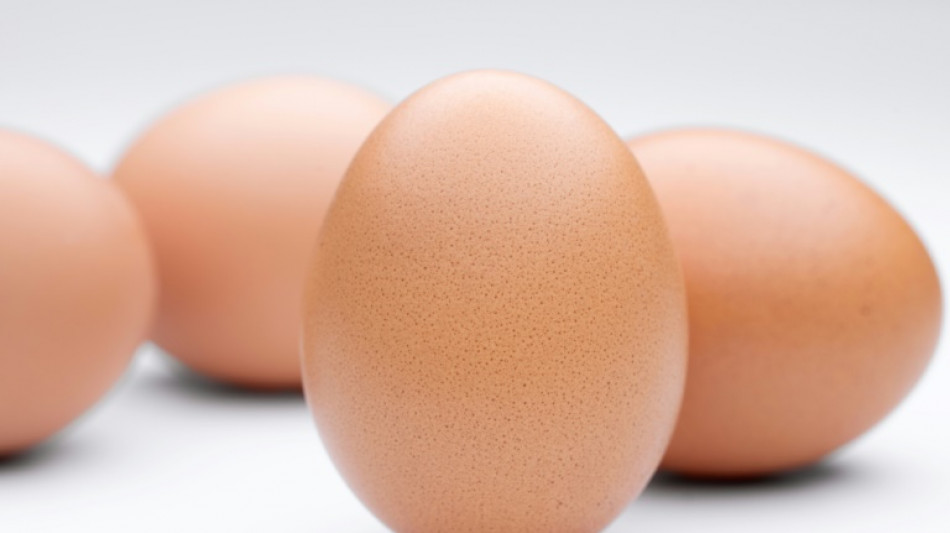
-
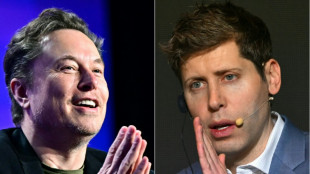 AI feud: How Musk and Altman's partnership turned toxic
AI feud: How Musk and Altman's partnership turned toxic
-
US inflation fight to take time in 'highly uncertain' environment: Fed official

-
 Ford CEO says Trump policy uncertainty creating chaos
Ford CEO says Trump policy uncertainty creating chaos
-
Dam fine: beavers save Czech treasury $1 million

-
 Altman says OpenAI 'not for sale' after Musk's $97 bn bid
Altman says OpenAI 'not for sale' after Musk's $97 bn bid
-
Trump says US disaster relief agency should be 'terminated'

-
 'Ridiculous and lame': South Africans mock Trump proposals
'Ridiculous and lame': South Africans mock Trump proposals
-
JD Vance puts Europe, China on notice at AI summit

-
 Global stocks mixed as tariff uncertainty looms
Global stocks mixed as tariff uncertainty looms
-
BP pledges strategic 'reset' as profit tumbles

-
 Gucci owner Kering's annual profit plunges
Gucci owner Kering's annual profit plunges
-
Trump signs orders for steel, aluminum tariffs to start March 12

-
 EU leaders vow 'firm' response to US tariffs
EU leaders vow 'firm' response to US tariffs
-
New Zealand rethinks opposition to deep-sea mining

-
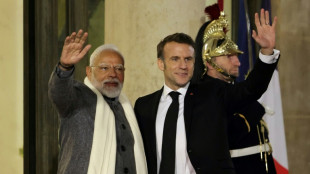 World leaders seek elusive AI common ground at Paris summit
World leaders seek elusive AI common ground at Paris summit
-
YouTube, the online video powerhouse, turns 20

-
 Playgrounds come alive again with Brazil school phone ban
Playgrounds come alive again with Brazil school phone ban
-
Could a climate megaproject cloud Chile's unparalleled views of universe?

-
 Trump signs executive orders on steel, aluminum tariffs
Trump signs executive orders on steel, aluminum tariffs
-
US judges challenge Trump cuts as legal battles mount

-
 Global stock markets brush off latest Trump tariffs
Global stock markets brush off latest Trump tariffs
-
Macron vows at summit France to 'deliver' on AI acceleration
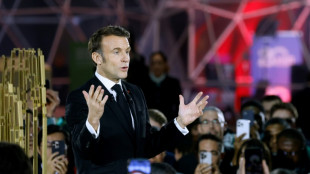
-
 Steel at heart of new Trump trade war
Steel at heart of new Trump trade war
-
US federal workers weigh Trump buyout as court to step in

-
 McDonald's profits dented by food poisoning outbreak
McDonald's profits dented by food poisoning outbreak
-
Almost half of remote French island hit by wildfire: official

-
 Trump to impose new 25% tariffs on steel, aluminum
Trump to impose new 25% tariffs on steel, aluminum
-
Global stocks markets push higher despite more Trump tariffs

-
 Nestle share slump adds pressure on new boss
Nestle share slump adds pressure on new boss
-
Spain boss Tome denies 'punishing' Hermoso after forced kiss

-
 Global stocks rise despite more Trump tariffs
Global stocks rise despite more Trump tariffs
-
Nokia names Intel's AI head to replace CEO

-
 Trump to impose new 25% tariff on US steel, aluminum imports
Trump to impose new 25% tariff on US steel, aluminum imports
-
Nokia CEO Lundmark to be replaced by Intel AI chief Hotard

-
 Almost all nations miss UN deadline for new climate targets
Almost all nations miss UN deadline for new climate targets
-
Most Asian markets drop as traders weigh Trump's latest tariff salvo

-
 Afghan wedding halls light up sombre Kabul nights
Afghan wedding halls light up sombre Kabul nights
-
Government chiefs and tech leaders gather in Paris for AI summit

-
 Trump says will impose 25% tariffs on US steel, aluminum imports
Trump says will impose 25% tariffs on US steel, aluminum imports
-
Trump says Musk will help uncover 'hundreds of billions' in US govt fraud

-
 Baltic nations 'successfully' link with European power grid
Baltic nations 'successfully' link with European power grid
-
Iranian schools and offices shut as cold snap bites

-
 AI app offers a lifeline for S.Africa's abused women
AI app offers a lifeline for S.Africa's abused women
-
China inflation picks up after Lunar New Year spending boost

-
 Record gold prices both boon and burden for London jewellers
Record gold prices both boon and burden for London jewellers
-
Musk risks putting EU buyers off Tesla: analysts

-
 Soaring egg prices have US consumers squawking
Soaring egg prices have US consumers squawking
-
Richard Gere calls Trump a 'bully' at Spain's top film awards
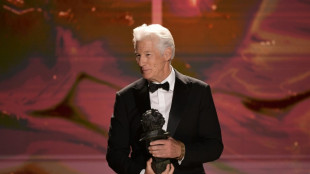
-
 Elon Musk says has no plans to acquire TikTok's US operations
Elon Musk says has no plans to acquire TikTok's US operations
-
Baltics disconnect from Russian power grid without incident


Scientists claim to have cracked how to cook the perfect egg
Hard-boiled, soft-boiled or poached. Scientists have studied how to cook the perfect egg and have come up with a new recipe that they say optimises its taste and nutritional quality.
Cooking an egg is a delicate art because the yolk and the white do not cook at the same temperature.
The yolk begins to solidify at 65 degrees Celsius (149 degrees Fahrenheit) and the white at 85C.
To avoid ending up with a soft-boiled egg, chefs have to choose a "compromise temperature", said the authors of a study published on Thursday in the journal Communications Engineering.
In the case of a hard-boiled egg -- cooked for 12 minutes at 100C -- all parts of the egg have a final temperature of 100C, well above the ideal cooking temperature, particularly for the yolk.
In the case of egg sous vide, which is cooked between 60 and 70C, the final egg is at a temperature of 65C.
But while this is the ideal temperature for the yolk, it is much too low for the proteins in the egg white to stick together.
As for the soft-boiled egg, cooked for six minutes at 100C, the authors say the egg yolk is undercooked.
The Italian polymer specialists approached the problem by simulating the process with the help of computational fluid dynamics software, which was used to simulate and analyse the flow of fluids and their interactions with solid surfaces.
- Recyclable materials -
The solution, they suggest, is to use a saucepan of boiling water at 100C and a saucepan of water at 30C and to transfer the egg from one to the other every two minutes for exactly 32 minutes in total.
"It is found that a stationary state at the centre of the yolk is reached at a constant temperature of 67C," namely the mean value between the temperatures of the saucepan of boiling water and the saucepan of lukewarm water, Pellegrino Musto, one of the study's authors, told AFP.
"Conversely, the albumen alternatively sees temperatures in the range 100–87C and 30–55C during the hot and cold cycles respectively," which allows all the layers of the egg white to reach cooking temperature, added Musto, research director at the National Research Council of Italy's Institute for Polymers, Composites and Biomaterials.
The authors then tested this method of "cooking in cycles" and found that the result was "more similar to the soft boiled when analysing the texture of its albumen, while it is very similar to the sous videsample when considering its yolk," the study says.
Cooking in cycles also has a "better advantage over conventional cooking methods in terms of nutritional content", the authors said.
The chemical analysis showed that the yolks of eggs cooked in cycles contained more polyphenols -- healthy micronutrients -- than hard-boiled eggs, soft-boiled eggs or sous videeggs.
Musto said in an email that the result was "(partially) unexpected" and proposed that "temperature degradation of bioactive molecules" at higher temperatures could be a possible cause.
The study has also found practical application, with one of the study's authors, Ernesto Di Maio, using the cyclic cooking method "regularly for his family and friends, who appreciate it a lot".
However, Musto pointed out that the study would have applications beyond the kitchen, especially with regard to recyclability, which he said was the main theme of the research group.
"A well designed thermal profile may allow the development of layered structures within an object made from a single material" that is entirely recyclable, Musto said.
"The resulting object will have layered properties as if it were a multi-material object," Musto said, adding that these are "very difficult to recycle" except in rare circumstances.
L.K.Baumgartner--CPN
